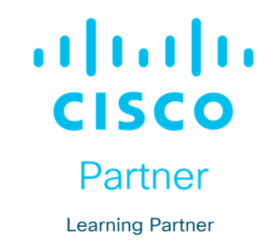The four-day Engineering Cisco Meraki Solutions training helps you gain the core knowledge and skills needed to deploy, plan, design, implement, and operate complex Cisco Meraki solutions. This training helps prepare you for roles focused on implementing, securing, and managing Cisco Meraki™ based networks from a centralised dashboard. Topics covered include Cisco Meraki’s cloud-based solutions, understanding of network security protocols, design of scalable architectures, and application of troubleshooting strategies.
This training prepares you for the Cisco Meraki Solutions Specialist (ECMS 500-220) exam. If passed, you earn the Cisco Meraki Solutions Specialist certification.
This training also earns you 24 Continuing Education (CE) credits towards recertification.
Digital courseware: Cisco provides students with electronic courseware for this course. Students who have a confirmed booking will be sent an email prior to the course start date, with a link to create an account via learningspace.cisco.com before they attend their first day of class. Please note that any electronic courseware or labs will not be available (visible) until the first day of the class.
Exam Vouchers: Cisco exam vouchers are not included in the course fees but can be purchased separately where applicable.

